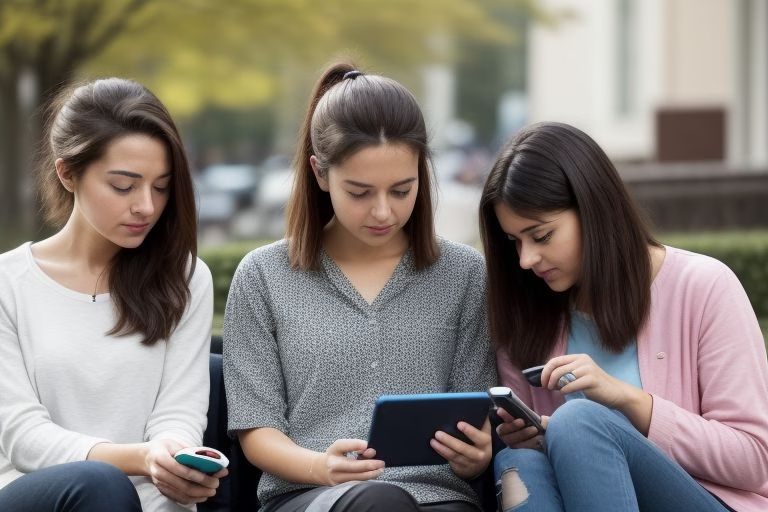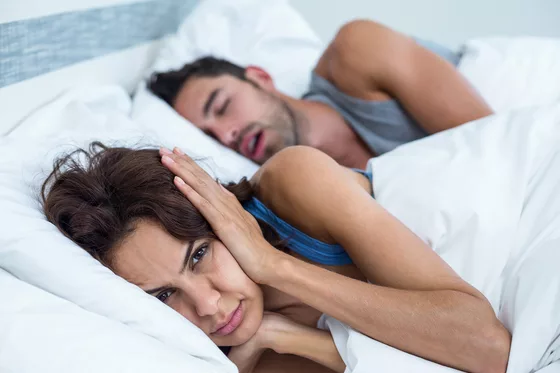
Smartphones are everywhere. Whether you’re texting, scrolling, gaming, or watching videos—your phone probably never leaves your side. But here’s something most people don’t think about: your smartphone could be messing with your mental health more than you realize.
In this article, we’re breaking down 7 shocking effects of smartphone use on mental health—along with simple, science-backed ways to fix them. If you’re feeling anxious, distracted, overwhelmed, or just off, your phone might be part of the problem. And we’ve got the solutions to help you take control.

So grab your coffee, turn off notifications, and let’s dive into how your smartphone and mental health are deeply connected—and what you can do right now to feel better fast.
1. Smartphones Increase Anxiety Without You Even Noticing
Every time your phone buzzes, your brain gets a mini spike of cortisol—the stress hormone. Multiply that by dozens (or hundreds) of times a day, and it’s no wonder people are feeling more anxious than ever.
📱 Doomscrolling, checking work emails after hours, and social media comparison are huge stress triggers.
How to fix it:
-
Turn off non-essential notifications
-
Set app timers for platforms like Instagram, TikTok, and X (formerly Twitter)
-
Practice mindful phone use—ask yourself why you’re opening the app
According to a study from the University of Gothenburg, high mobile phone use is directly linked to increased stress and sleep disturbances. Just knowing that can help you set better boundaries.
2. Social Media Makes You Feel Like You’re Not Enough
It’s called the highlight reel effect—when you see everyone else’s “perfect” lives online, it’s easy to feel like you’re falling behind. But what you’re really seeing is a filtered version of reality.
Keywords like: FOMO, low self-esteem, social comparison—they all tie back to smartphone-induced insecurity.
Quick Fix:
-
Unfollow accounts that make you feel bad about yourself
-
Follow uplifting, educational, or funny creators who make you smile
-
Spend more time with real friends offline
✅ Tip: A 2022 study found that people who took just a 7-day social media break felt happier and less anxious. Try it.
3. Smartphones Hijack Your Sleep (And Your Brain Needs That)
If you’re struggling to fall asleep or wake up feeling drained, your phone might be the reason. Blue light exposure from screens blocks melatonin, the hormone that makes you sleepy.
And it’s not just about light—mental stimulation from scrolling before bed keeps your brain alert, making it harder to wind down.
Fix your bedtime phone habits:
-
Use “Night Shift” or blue light filters
-
Stop screen use at least 1 hour before sleep
-
Charge your phone in another room (seriously, try it)
Researchers at Harvard confirm that even short bursts of blue light at night can delay melatonin release. Sleep matters—and your mental health depends on it.
4. Constant Connectivity Makes You Burn Out Faster
Being available 24/7 isn’t a badge of honor—it’s a recipe for burnout. Whether it’s replying to work emails at 9 PM or getting pinged during dinner, smartphones blur the line between work and rest.
This never-ending loop of productivity can lead to:
-
Mental exhaustion
-
Irritability
-
Lack of focus
Fix it with boundaries:
-
Set clear “phone-free hours” daily
-
Use “Do Not Disturb” mode liberally
-
Don’t feel guilty for not replying instantly
Psychology Today reports that smartphone overuse is linked to burnout, especially in young professionals. Boundaries aren’t rude—they’re necessary.
5. Multitasking With Your Phone Shrinks Attention Span
Let’s be real: how often are you watching TV while scrolling TikTok while texting? It might feel like you’re getting more done, but actually—multitasking harms your focus and brain performance.
A Stanford study found that heavy media multitaskers are more distracted and less able to filter out irrelevant information.
Here’s how to reclaim your focus:
-
Use the Pomodoro technique (25 mins focused work, 5 mins break)
-
Turn off background distractions like the TV or YouTube
Your brain deserves better than split-second attention spans.
6. Smartphone Addiction Is Real (And It Feeds Depression)
Yes, smartphone addiction is a real thing—and it often goes unnoticed. The more we depend on our phones for connection, entertainment, and escape, the harder it becomes to put them down.
This cycle leads to:
-
Increased loneliness
-
Higher risk of depression
In fact, this study from the Journal of Adolescence links excessive smartphone use with depressive symptoms in young adults.
How to break the addiction loop:
-
Use apps like Forest or StayFree to track screen time
-
Schedule “digital detox” weekends
-
Rebuild real-world hobbies (music, drawing, walking, gardening)
If you feel “off” when you’re not on your phone—that’s your sign to take a break.
7. You’re Losing the Joy of Being Present
One of the biggest losses from smartphone overuse? Missing real life. Eye contact. Deep conversations. Laughing with friends without needing to film it.
Your phone might be stealing your most meaningful moments, and you might not even realize it until it’s too late.
Signs you’re disconnected:
-
You check your phone first thing in the morning and last thing at night
-
You panic when your phone isn’t around
-
You can’t enjoy a meal, walk, or event without documenting it
How to reconnect with reality:
-
Have tech-free meals
-
Practice mindful walking or sitting with no distractions
-
Do one thing at a time, slowly and intentionally
Lifehack.org shares great strategies here if you’re ready to live more in the moment.
The Good News: Your Smartphone Doesn’t Have to Control You
Here’s the truth—you don’t need to give up your smartphone to protect your mental health. You just need to change how you use it.
Let’s recap:
✅ Turn off unnecessary notifications
✅ Set screen time limits and stick to them
✅ Disconnect before bed
✅ Protect your attention span
✅ Unfollow toxic content
✅ Take regular digital detoxes
✅ Be more present in real life
Your smartphone is a powerful tool. Use it intentionally, and it can actually support your mental health—instead of harming it.
Bonus Tip: Use Your Phone for Good
Not all screen time is bad! Your smartphone can also boost your mental health when used mindfully. Try this:
-
Download meditation apps like Insight Timer or Calm
-
Listen to podcasts that uplift and educate you
-
Use mental health trackers like Moodpath or Sanvello
-
Video call someone you love instead of texting
The goal is not to quit your phone—it’s to make it work for you, not against you.
Final Thoughts: Take Back Control Today
If your smartphone and mental health have been at odds lately, you’re not alone. Millions of people are struggling silently—but change is possible. And it starts with awareness.
Start small. Pick one change from this article and try it for 7 days. Whether it’s turning off notifications or setting a bedtime phone curfew—it makes a difference. Your brain, your emotions, and your relationships will thank you.
If you found this guide helpful, share it with someone who needs it. We’re all in this together—and it’s time to stop letting our phones control us.
Related Resources to Explore Further:
💡 Pro Tip: Bookmark this article. Come back to it each time you feel overwhelmed. Mental wellness is a daily journey—and small changes lead to big results.
Let’s flip the script: use your phone to build a better brain, not break it. Start today.



